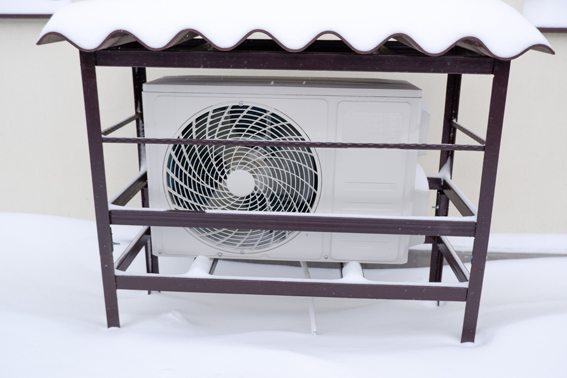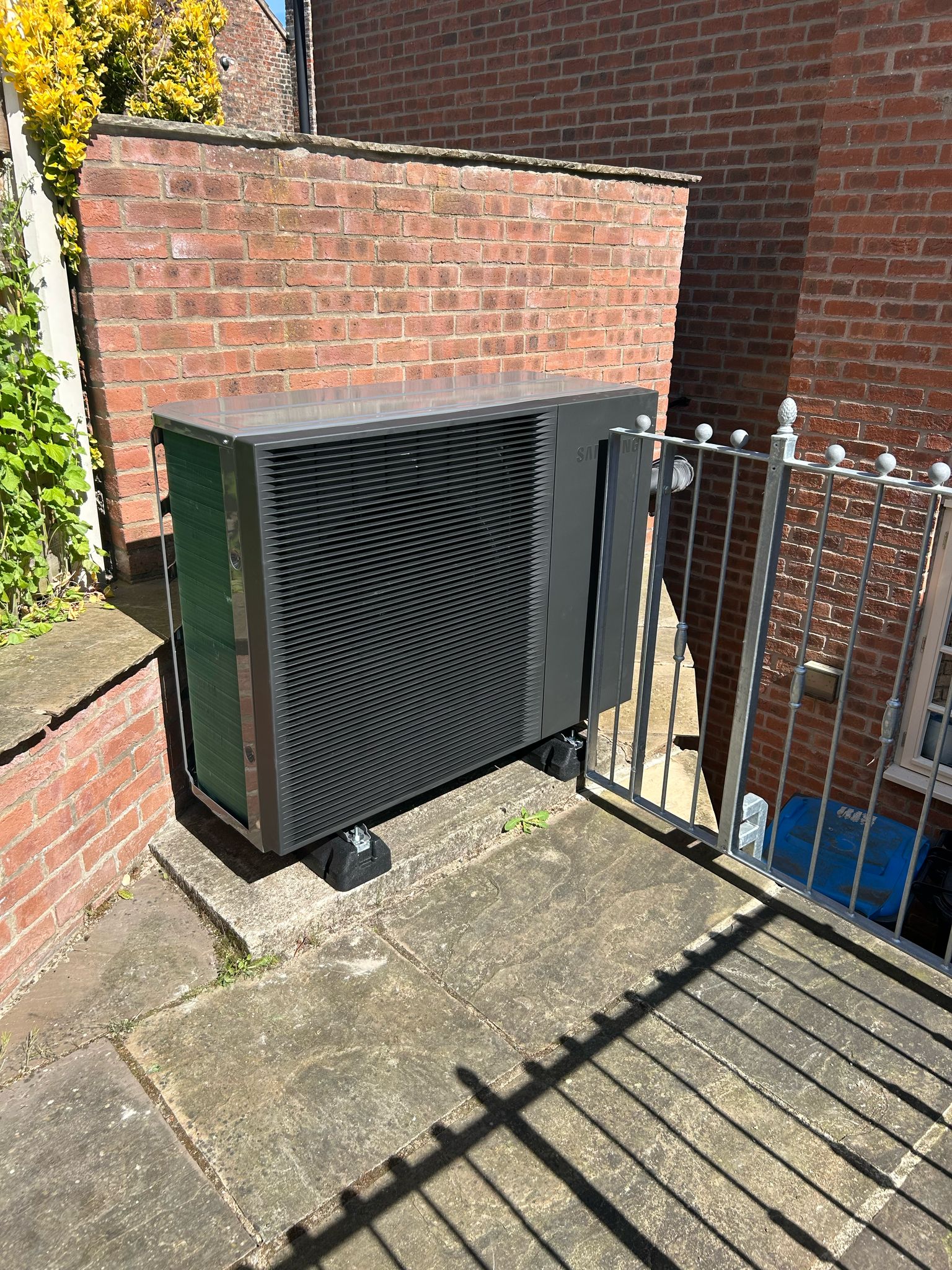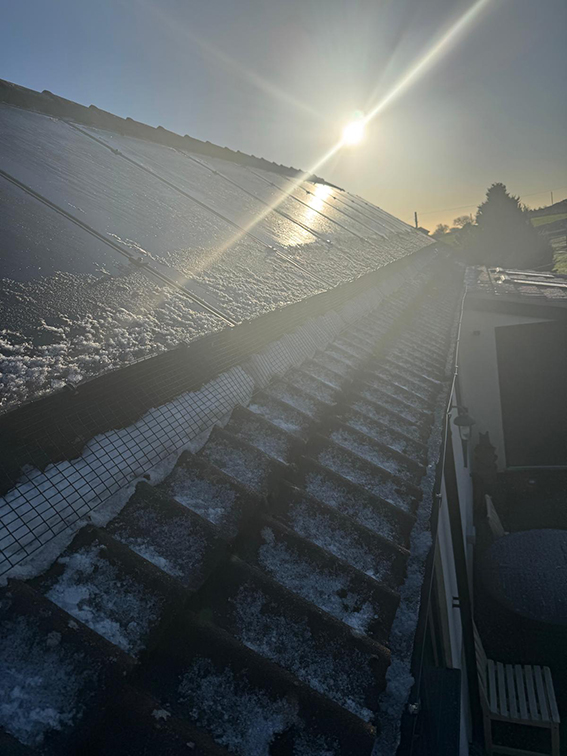
How Efficient Are Air Source Heat Pumps in Winter?
The simple answer is. 'Yes, they are efficient, but not as efficient as they are in summer.'
An air source heat pumps will work at between 300 and 400% efficiency in the summer.
Which means, for every 1 kW of power they use they will output the equivalent of 3 – 4 kWs of heat.
Typically, the efficiency of an air source heat pump in winter drops to 200 – 300%.
So, still plenty of heat for your home.
You can measure heat pump efficiency in units called the ‘coefficient of performance’ or CoP.
You can work this out by dividing the heat output of the heat pump by the energy input.
If a heat pump’s CoP is 3 at 0°C, that works out at 300% efficiency.
The higher your CoP, the more efficient and expensive your heat pump will be.
How do air source heat pumps work?
In terms of the efficiency, this is how an air source heat pump turns cold air and electricity into heat.
The fan, which is the bit you see outside people’s homes, drags air from the outside and feeds it into the system.
Inside the heat pump are pipes full of a refrigerant with a very low boiling point.
The air raises the temperature of the refrigerant until it’s warm enough to be sent through a pressure manifold.
Putting the refrigerant under pressure raises the temperature exponentially until it’s hot enough to be used to heat water.
That heated water is then used for the home’s central heating and hot water.
That’s super simple but will give you an idea of your system.
Air source heat pumps in cold countries
In Europe, the 4 countries that install the most air source heat pumps are Norway, Sweden, Finland, and Estonia.
Those are some pretty cold countries right there!
Homes in the colder countries will need heating more than those lucky people in Med, but you may not think air source heat pumps are the obvious choice.
Norway is actually Europe’s leading installer of heat pumps, one in four people have one fitted, and their average winter temperatures is minus -6.8°C
Lithuania and Poland are also starting to catch up with heat installations – and no one is going sunbathing there during the colder months!
So, you'll have no trouble in the UK!
What temperatures do heat pumps function at?
The top temperature a heat pump will work at is irrelevant really, as why would you need your central heating on if it was 30°C outside?
For peace of mind though, your air source heat pump will work perfectly well at 30°C should you need to pop the heating in August.
The real question is, how cold does it have to be outside to stop a heat pump working all together.
Well, in experiments done in various countries we have found an air source heat pump will continue to heat a home even when the outside temperature drops to a bone chilling -21°C!
That sort of temperature is rarely seen in the UK anywhere but the remotest Scottish highland or on top of the Pennines.
Officially, in some cases air source heat pumps will function when it gets all the way down to -25°C outside.
Will your heat pump freeze in winter?
Like all mechanical items that utilise liquids to do their job, heat pumps can freeze if they are not set up correctly.
Heat pumps have a ‘defrost mode’ that should kick in when temperatures become unusually low – and if this doesn’t kick in, you need to speak to your installer or the manufacturer of the heat pump itself.
The ways you can lower the possibilities of your pump freezing are:
- Ensure all sensors are working
- Check refrigerant levels are correct
- Make sure there’s nothing blocking the fan
- Ensure vents are clear
If none of these things are the problem, call the manufacturer.
So, how can you tell your air source heat pump is in trouble?
The best way to preempt a problem with your air source heat pump is to look out for the following things:
Your electricity bill rockets.
While your electricity bill will go up in winter, as it always does, if you see it getting out-of-hand, that means your heat pump could be running in an inefficient manner. There are many reasons for this, from low refrigerant to your pump being too small for your home.
Ice build up
Your system should automatically defrost any ice if it starts to form on the coils, so there’s a problem somewhere in the pump when see a build up of ice.
Not heating or even blowing cold air
This could mean there is a problem with the compressor, a valve, or the refrigerant.
Conclusion
The big thing we can take from this blog is that your air source heat pump will be just fine during the winter months.
You do have to make sure you are checking your heat regularly though to ensure its functioning correctly.


